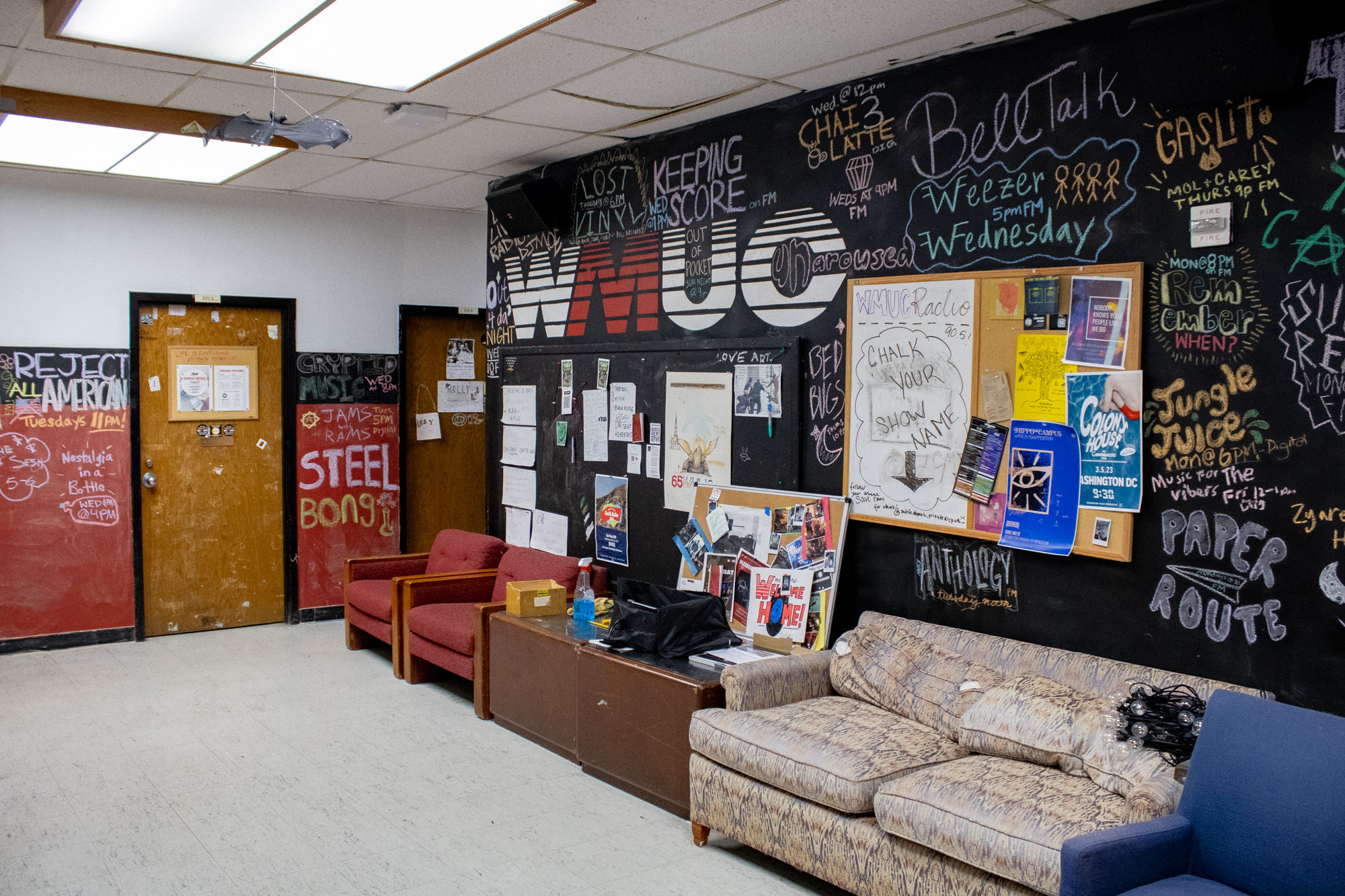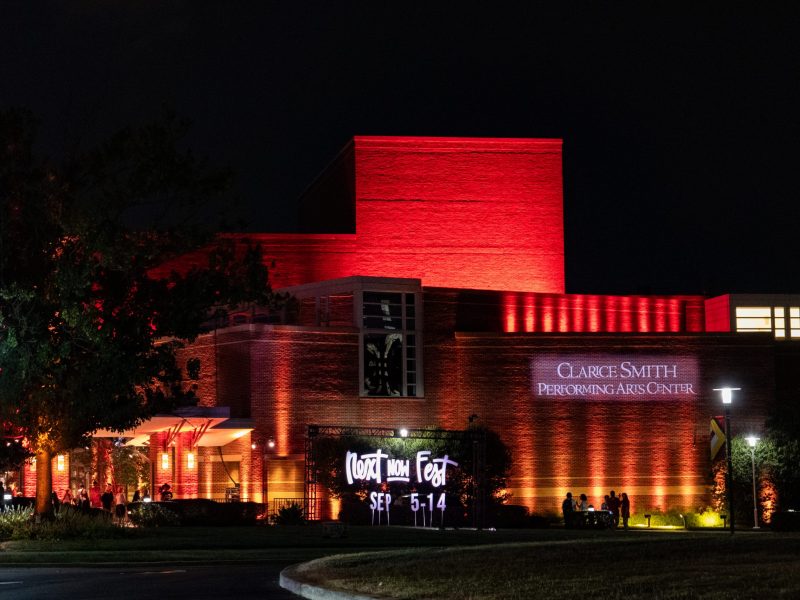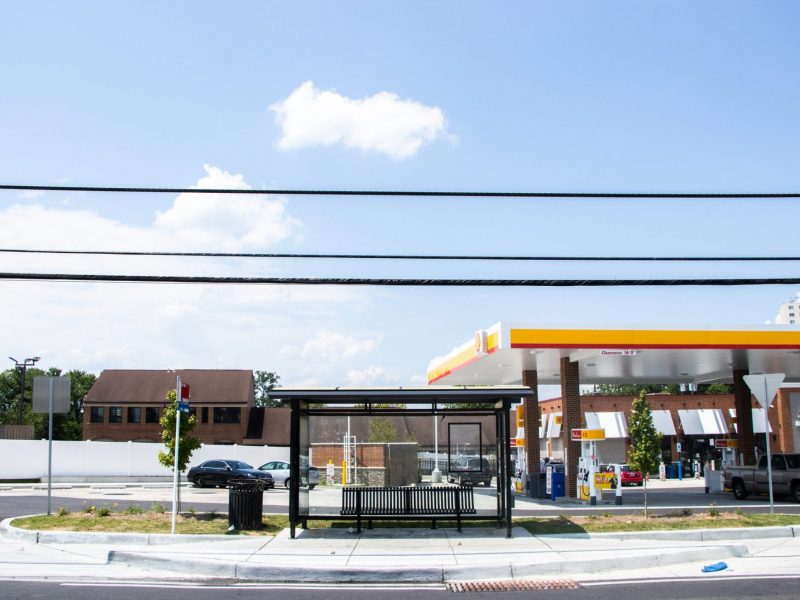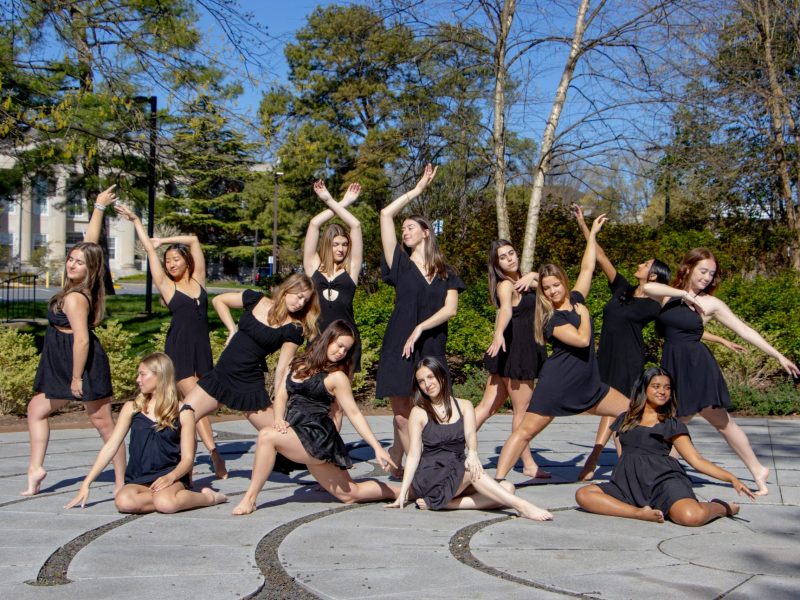It’s unlikely many ears turned toward a University of Maryland classroom on Oct. 11, 1948, when WMUC’s first broadcast crackled to life. The station’s first broadcast lasted only three days due to poor transmission, but began a time-honored student tradition that’s celebrating its 75th anniversary this month.
From a speech department classroom to their third-floor studio at South Campus Dining Hall — with a brief stretch in a renovated shower stall in between — the storied station has adapted to changing times, remaining an essential part of the university’s campus culture.
Over the past couple of decades, independent college radio stations have faced unprecedented challenges, largely due to the expansion of digital music streaming platforms. Throughout the 21st century, a growing number of stations have sold their airwave licenses to national conglomerates, often local NPR affiliates.
But WMUC has continued its growth. Former WMUC General Manager Madeline Redding oversaw the switch from 88.1 FM to 90.5 FM in 2021 which boosted the threatened station’s limited broadcast range.
Aidan Appelson, a senior biology major, is the station’s current general manager. According to Appelson, WMUC’s post-pandemic return came with its own set of unforeseen obstacles.
[UMD Fit Check brings the runway to College Park]
“A lot of our history, as far as I know, got erased during COVID,” Appelson said. “When I started my freshman year, [WMUC] was just a website, so there wasn’t really any community aspect to that.”
In the years since the pandemic, Appelson, along with Program Director Molly Szymanski, has worked to build back WMUC’s station culture. These efforts have included homecoming, prom, bake sales and September’s WMUC Fest music festival.
These events allowed the station to rebound. The number of DJ applicants each semester since the university’s return to in-person has exploded. This fall saw 121 aspiring jockeys vie for a time slot, compared to 44 in fall 2020 — an increase of 175%.
John Davis, a curator at the Michelle Smith Performing Arts Library and a former DJ at WMUC, understands many students’ pull toward the station. Davis joined WMUC in the spring of 1995, where he led his own show, took over Third Rail Radio from founder and housemate Eric Speck and met Mollie, the WMUC staff member who would become his wife.
Davis’ interest in punk and indie rock led him to WMUC’s DJ booth, where the station’s freeform radio format allowed him to explore little-known and underground artists. Freeform, which allows DJs to create unique shows outside of the Top 40 format, has been instrumental in WMUC’s longevity, Davis said.
[These are the top spots in Maryland to view fall foliage]
“[Students] were going there and then it was like a canvas for them to be themselves,” Davis said. “That engenders a lot of loyalty and love for a place when, here’s a place where you’re encouraged to just be yourself and let your taste be heard.”
Some of those ’90s up-and-comers recorded within WMUC’s music room. Laura Schnitker, an alumni DJ at WMUC and lecturer in the school of music, has led the charge to save those invaluable pieces of station history.
Since 2011, Schnitker has archived and saved more than 1,500 reels, tapes and discs containing decades of radio memories. Playlists, memorabilia and exclusive recordings were scanned, digitized and organized for future generations of music lovers and station fanatics.
The discovery that sparked Schnitker’s project was a 1971 recording of Don McLean’s “American Pie,” recorded at WMUC before the song’s release. It featured an extra verse buried within the station’s storage.
Schnitker’s work now lives inside the university’s special collections archive, available to anyone looking to explore WMUC’s past.
This fall will see new DJs enter the station’s hallowed halls, their voices ready to join the chorus of WMUC creatives past and present. Wampapedia will mix Wikipedia deep dives with associated music, Bender Haze will shine a spotlight on female and LGBTQ+ artists, while Bits and Pieces will give listeners a chance to pick the tunes.
Fresh ideas and new takes are ensuring that even as the station nears its ninth decade on-air, it will continue to give listeners a reason to tune in. For Appelson, they represent the very reason he joined the station years ago.
“I think it can really just be summarized to uncompromising creativity,” Appelson said. “I take so much pride in having a part to play and making the community we have today.”
With graduation on the horizon, Appelson is excited to come back after the next 25 years for the 100th anniversary.
“Hopefully, they can hear us in Baltimore by then,” he said.



